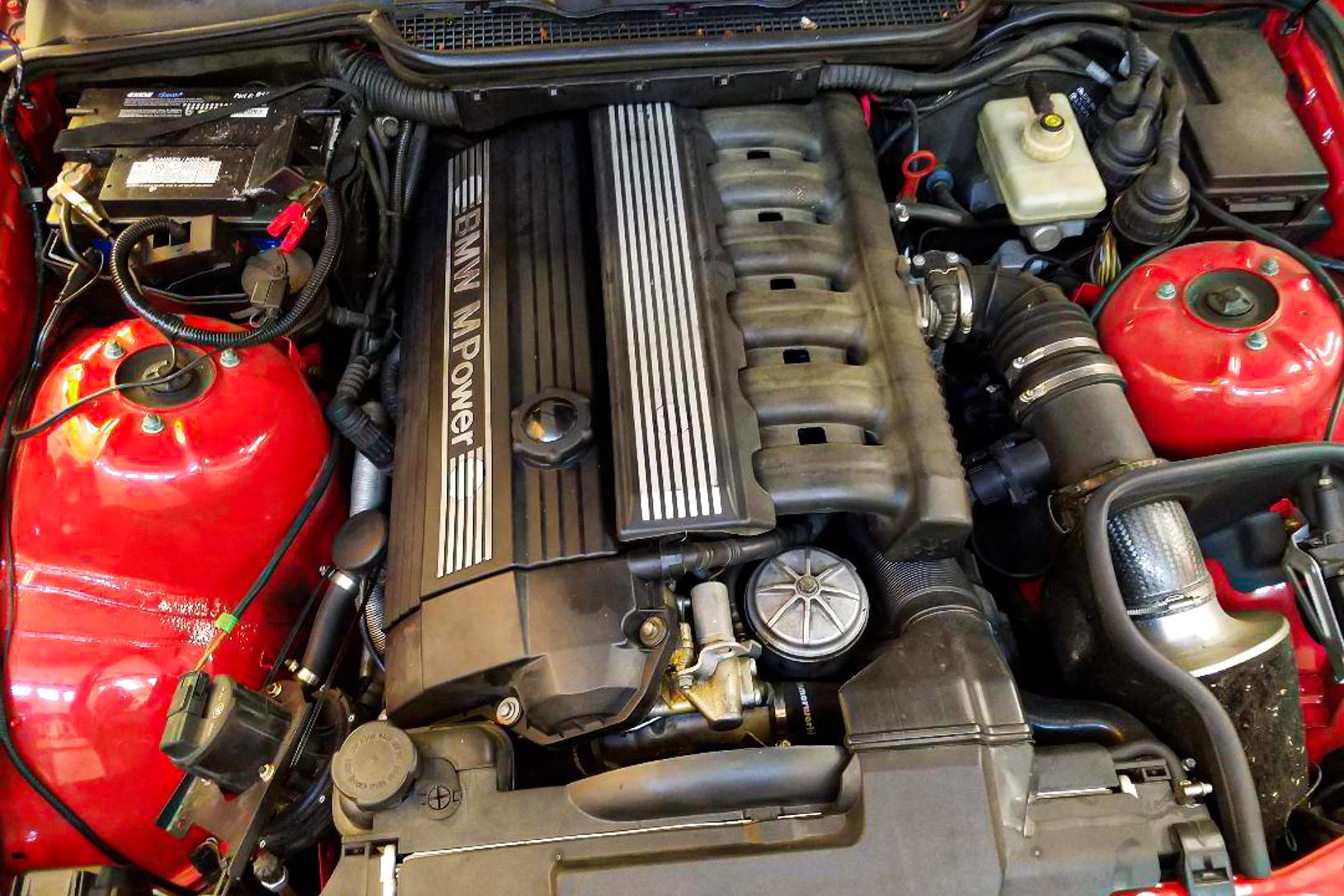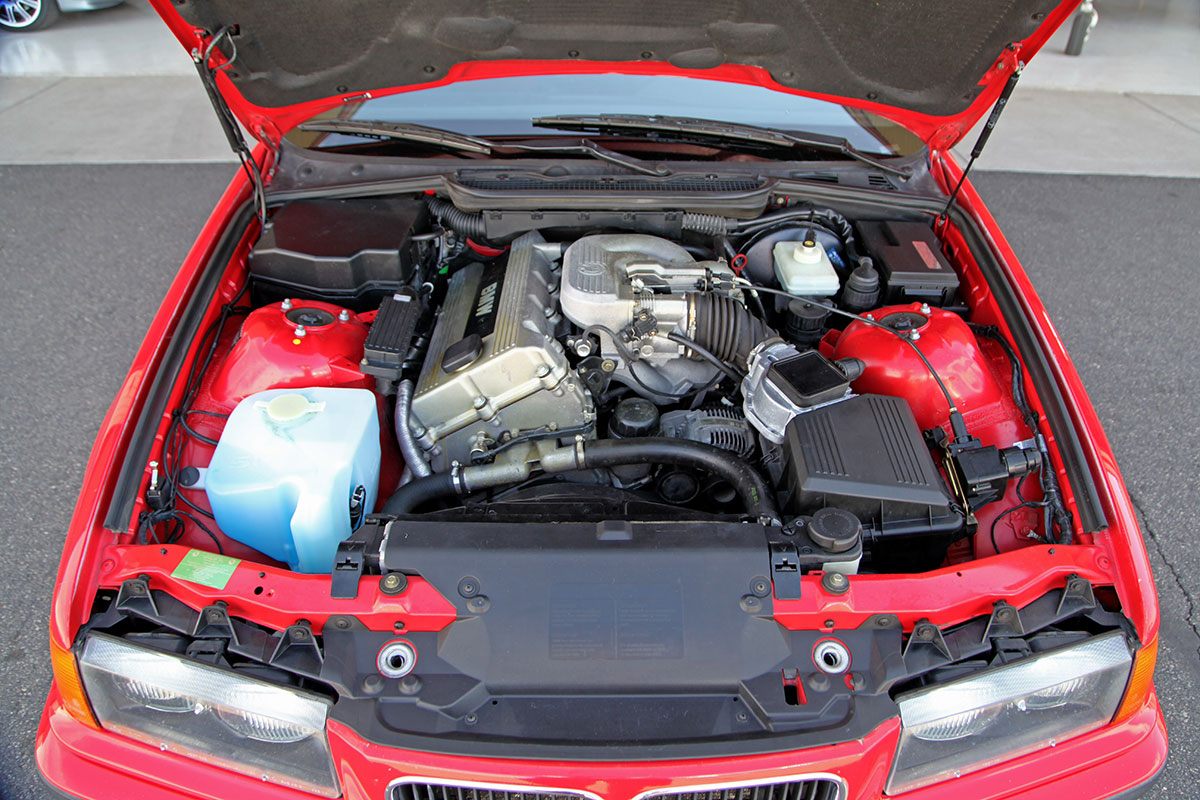BMW 318ti: A Timeless Compact with Classic Allure
BMW 318ti: A Timeless Compact with Classic Allure
Blog Article
Vital Factors To Consider for Picking the very best Engine for Your Demands
In the world of picking the excellent engine to meet your requirements, a number of critical factors demand careful factor to consider to make sure optimum efficiency and efficiency. From the nuanced balance in between power and efficiency to the often-overlooked elements of upkeep and solution requirements, each element plays a critical function in determining the most suitable engine for your particular demands. As the intricacy of engine innovations remains to progress, discerning the most suitable option necessitates a deep understanding of the interplay in between different considerations. By checking out the elaborate web of variables that underpin this decision-making procedure, a more clear path arises in the direction of picking an engine that not just satisfies but surpasses your expectations.
Power and Performance
When examining engines for optimum efficiency, it is crucial to prioritize both power outcome and efficiency. Power result gauges the capability of an engine to produce power, which directly impacts its performance. A high power outcome is essential for demanding tasks such as high-speed needs or sturdy applications. It ensures that the engine can take care of the workload efficiently and successfully. However, power alone is not sufficient; performance plays a significant duty in determining the total efficiency of an engine. Performance describes how well the engine transforms fuel into usable power. A a lot more effective engine will certainly provide better mileage, reduced discharges, and reduced operating prices. Striking the best balance in between power result and performance is essential to choosing an engine that meets your certain requirements. When making this decision, it is vital to consider variables such as the meant use of the engine, ecological influence, and long-term cost implications. By thoroughly assessing both power and performance, you can choose an engine that delivers ideal performance and fulfills your demands efficiently.
Gas Performance and Economic Climate
Gas effectiveness refers to the engine's ability to convert fuel right into energy with very little waste, directly influencing operating expenses and environmental sustainability. Engines with higher gas efficiency not only lower fuel expenditures yet also reduce carbon exhausts, contributing to a greener procedure.

Compatibility and Application
Considering the gas performance and economic climate of an engine, the following important element to address is its compatibility and application within specific operational contexts. Compatibility describes how well the engine incorporates with the total system or devices it powers. It includes variables such as physical measurements, installing choices, electric interfaces, and control systems. Making certain compatibility is important to protect against issues such as overheating, vibrations, or power discrepancies (bmw 318ti).
Different engines are created for particular objectives, whether it be commercial machinery, aquatic vessels, vehicles, or power generators. Comprehending the intended application enables for the selection of an engine that can provide the needed power result, torque, and operational attributes.
Upkeep and Service Needs
Maintenance and service requirements play a vital function in making certain the long life and optimal efficiency of an engine. Routine maintenance is necessary to stop break downs, expand the life-span of the engine, and preserve its effectiveness. When picking an engine, it is essential to think about the maker's advised maintenance routine and the schedule of solution centers or qualified service technicians.
Elements such as the regularity of oil adjustments, filter substitutes, and total assessments can considerably affect the engine's performance. Some engines might call for more frequent maintenance based upon their layout and use, while others might have longer intervals between upkeep checks. It is essential to stick to these solution demands to stay clear of costly repairs and unanticipated downtime.

Price and Budget Plan Considerations
When picking an engine for a particular application,Budget plan constraints often play a significant duty in the decision-making procedure. When thinking about the cost and budget ramifications of selecting an engine, it is necessary to examine not only the first acquisition rate but also the long-lasting expenditures connected with upkeep, fuel consumption, and possible upgrades or repair services. It is essential to strike an equilibrium between the upfront price of the engine and its general lifecycle prices to make sure that the chosen engine stays economically sustainable throughout its operational life expectancy.
Elements such as gas dependability, efficiency, and sturdiness can straight influence the complete price of ownership of an engine. While a more expensive engine may visit homepage have higher ahead of time costs, it can potentially result in lower maintenance and fuel expenditures with time, hence supplying far better worth over time. In addition, thinking about the schedule and expense of extra components, in addition to the simplicity of upkeep and service, can help protect against unexpected financial pressure in the future. By very carefully assessing these price and budget factors to consider, you can make an enlightened decision that straightens with your operational needs and financial constraints.
Final Thought

Fuel performance refers to the engine's ability to transform gas into energy with marginal waste, directly influencing operating prices and environmental sustainability.Factors affecting fuel effectiveness include engine style, combustion performance, and total efficiency optimization. Furthermore, choosing the ideal fuel kind and quality as recommended by the engine maker can additionally boost performance and lengthen engine lifespan.
Engines with good utility features and readily offered parts can lower upkeep expenses and lessen the time the engine is out of operation - bmw 318ti. click It is essential to strike an equilibrium between the in advance cost of the engine why not try here and its total lifecycle expenses to guarantee that the selected engine continues to be economically lasting throughout its operational life expectancy
Report this page